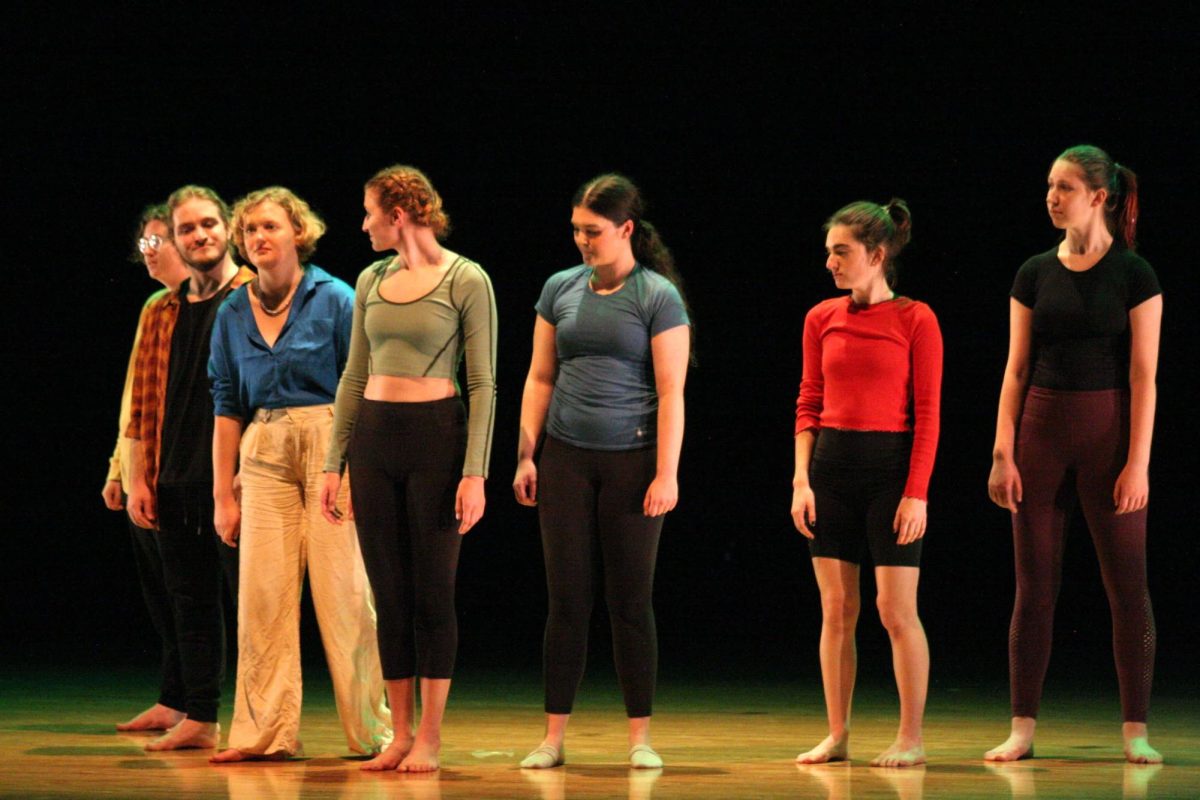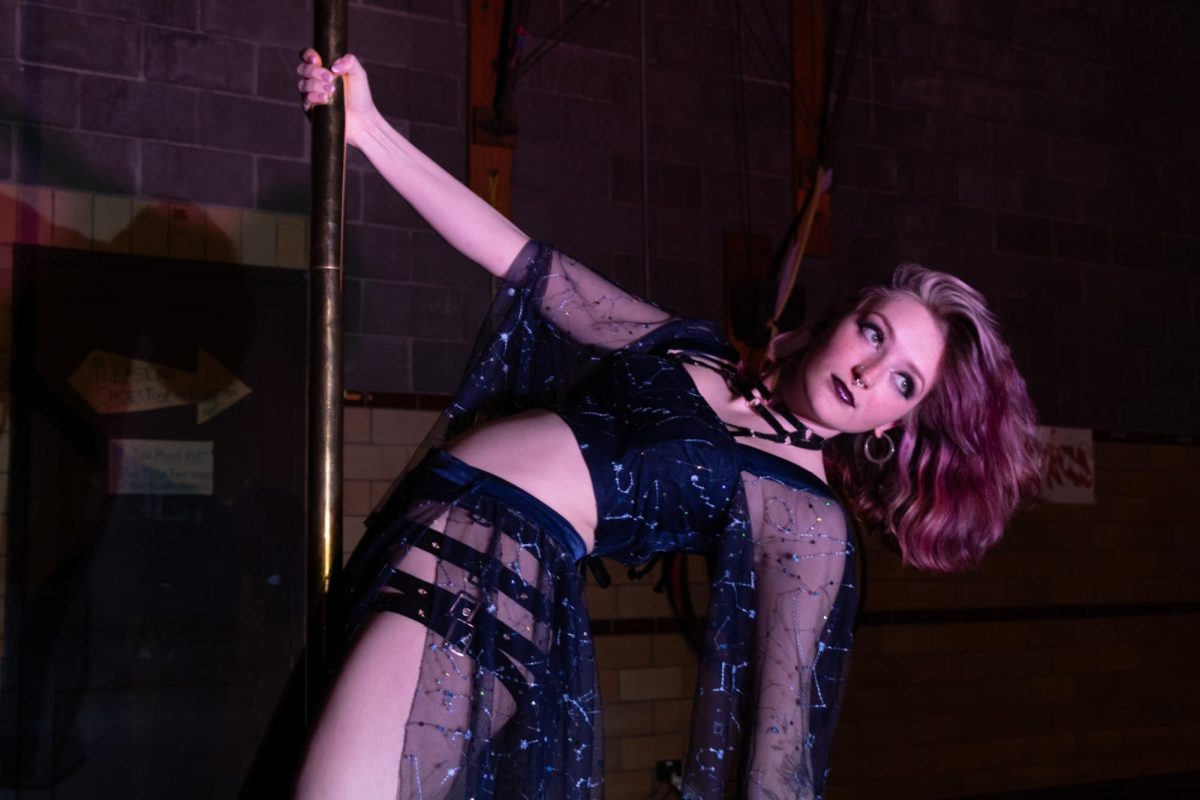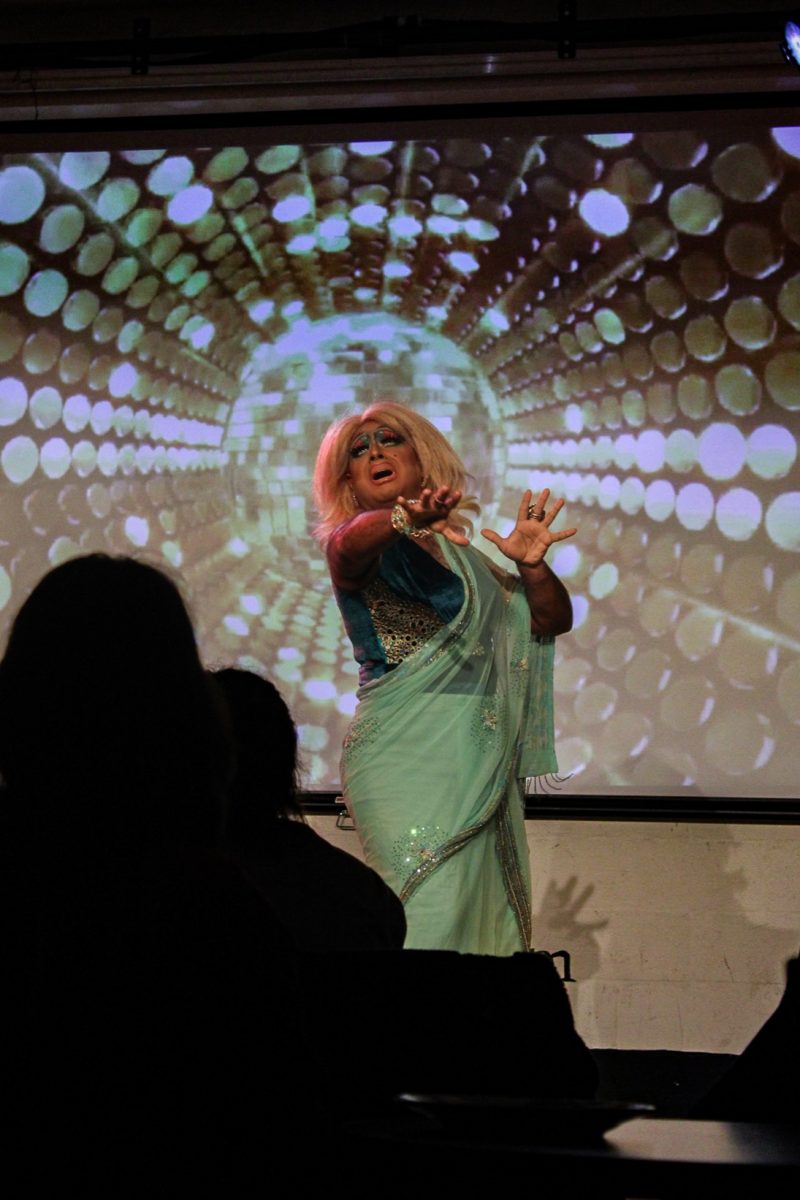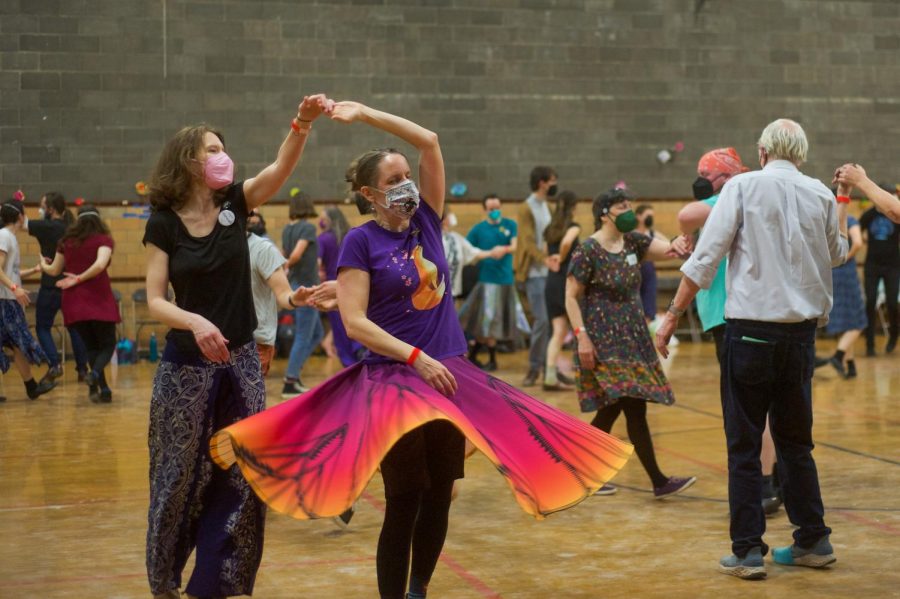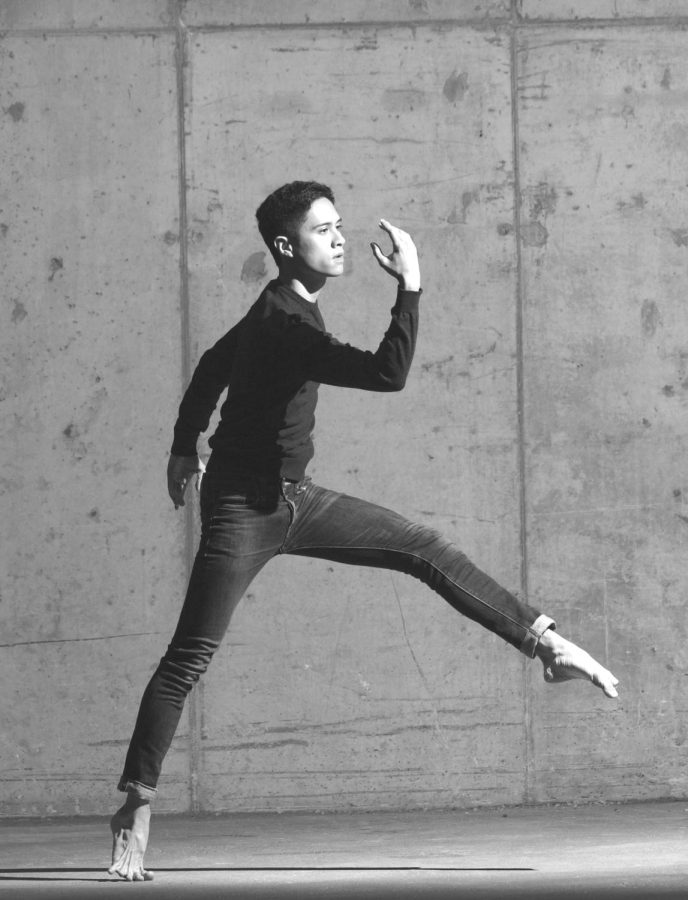On Friday, Nov. 3, I walked into Warner Main and sat down on the crowded mats in front of the bleachers. I was there to see Fall Forward, the annual performance put on by the Oberlin College Dance department. Before I walked into the show, one of my friends told me that there was a controversy about a half-hour senior dance piece that was part of the program for the night. It was about whether or not a piece that took up three dance slots in the show should have been allowed or whether it should have been its own show entirely, as often happens with senior projects. I don’t know what prompted this piece to be placed in Fall Forward, but I’m very glad it was. I am referring to “Patient 6183,” choreographed by College fourth-year Liz Hawk.
The dance used multiple actors to represent the people in the story, even having them represent different versions of the same character. It used spoken word as well as dance to tell the story of a child who is diagnosed with severe scoliosis and consequently spends their whole life facing the fallout of it. The piece opens with a row of people in lab coats surrounding a bed occupied by a single person. The “doctors” begin listing the conditions of the patient, speaking over each other until the words are unintelligible — a mess of medical jargon. Then the person on the bed uses their own voice to tell the audience “how fucked up I am.” This set the tone for the whole piece, and simultaneously made me sit up and pay attention.
I was diagnosed with a rare bone condition when I was seven years old. As a result of that, I have spent most of my life in and out of hospitals. I was subsequently diagnosed with several other exciting things like Cyclic Vomiting Syndrome — as fun as it sounds — and scoliosis — though not as bad as that of the subject of the dance. At this point I am well and able-bodied, but that makes me a medical anomaly and a fascination of doctors. I remember being so proud that the medical student assisting with my care wrote a paper about me when I was eight. I thought that the fact that doctors had never seen a case like mine was cool. I was unusual. Little did I know how isolating and dehumanizing that kind of “unusual” actually is.
While I understand that people felt “Patient 6183” was too long a piece for a show like Fall Forward, I personally relish the fact that something highlighting an experience I know only too well was able to be placed in it for the general public to consume. My entire viewing experience was spent sitting on the edge of my seat, engrossed in the story and seeing myself represented for the first time ever. I was brought to tears multiple times as I watched these dancers recreate the exact feelings I’ve never found a way to express.
There is one part of the dance that will stay with me as long as I live just for the sheer heartbreak of it. The scene begins with the main character lying on the hospital bed, staring up at the ceiling. They describe the mural painted on the ceiling, most likely placed there to comfort children who are suffering. But they are not a child, so the mural is not meant for them. At the same time, unseen by them, the older version of themselves is sitting on the bed next to them, reflecting on the experience of that day and how their mother must have felt. The child begins to describe the pain they are feeling, their terror and sense of loneliness. The more they speak the more desperate they become, unable to hear their older self telling them it will be okay, desperately crying out, begging for God, someone, anyone, to be there — and then, like magic, they see their older self. They hear them say, “I am here. I am here. I am here.” The two lock in an embrace as the scene changes.
No description of this moment can accurately depict its earth-shattering grief. I felt the tears streaming down my cheeks as I watched my own young self with the same childish pride, upset about the stupid “kid” things that filled my hospital rooms, trying to be brave and grown-up as I felt the pain, terror, and loneliness threatening to take over. I found myself constantly wishing that I could go back and comfort my younger self, that she would hear me as I told her that I am here and that I will never leave her behind even as I grow and move forward.
I understand that people will have their critiques about this performance. I respect and welcome that, as there is always room to grow. That said, I will always be grateful to Liz Hawk for baring their soul with such raw honesty in “Patient 6183.” I saw myself on that stage for the first time in my life and experienced an emotional catharsis that nothing has ever given me before.


